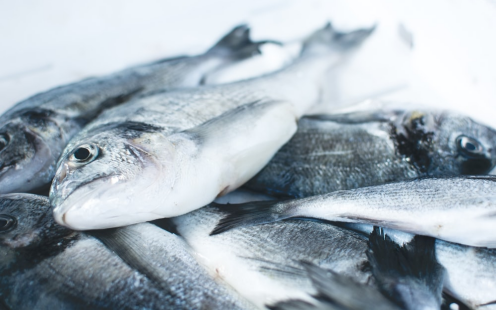Cold Chain Food Tested Positive? Please Take These Protective Measures
At present, the global COVID-19 epidemic is still severe, and the overall low temperature environment in the northern hemisphere is still low, which is suitable for the survival of the virus. Recently, many cold chain foods or packaging have been tested positive for coronavirus, which has also caused many people to worry about it. Some people even bluntly said: “Just stop eating cold chain food.” However, this “one size fits all” approach is obviously impractical.

So, how should ordinary citizens take protective measures?
Question 1: How to disinfect the refrigerator?

Studies have confirmed that the coronavirus can still survive under minus 20 degrees Celsius. Therefore, experts suggest that citizens can clean and disinfect the refrigerator once a week.
Before disinfecting the refrigerator, we must first make preparations. Unplug the power plug, stop the machine, let it stand and check whether it is safe, then take out the food stored inside in turn, and at the same time take out the shelves, fruit and vegetable boxes in the refrigerator to clean up the residue, defrost and wipe the inner tank and accessories. You can also directly purchase refrigerator disinfectants on the market and use them normally according to the instructions.
After the refrigerator is emptied, a sponge or nylon brush can be dipped in soda water to clean and disinfect the surface, interior and accessories. Or you can use 500 mg/L chlorine-containing disinfectant to disinfect and wipe. After wiping, close the refrigerator door for 15 to 30 minutes, and then wipe with water or 75% alcohol. After the cleaning work is completed, let the refrigerator stand for half an hour to ventilate, and then energize it for normal use.
If you use soda water for disinfection, the frequency of cleaning the refrigerator can be shorter. If you use alcohol or disinfectant, it is recommended that the time be longer. In the process of cleaning the refrigerator, you must wear gloves all the way, and don’t miss the crevices of the refrigerator. Wash your hands under running water after the work is completed to avoid cross-infection.
I would like to remind everyone that the refrigerator at home is by no means a safe, but can easily become a breeding ground for bacteria and viruses. Therefore, even if it is not due to the epidemic, the home refrigerator should be cleaned and disinfected regularly.
Question 2: How to deal with the chilled food?

Citizens go to the supermarket to buy chilled food, from selection to purchase to cleaning and cooking at home, how do they do personal protection? Here, take an imported frozen deep-sea cod as an example to explain the whole process.
First of all, if citizens go to regular supermarkets or markets to buy seafood, they should wear disposable medical masks and disposable gloves. When selecting, pay attention to the relevant information such as the origin, source, and quarantine of imported food. You can also ask the merchant to check the disinfection certificate. After the purchase, citizens can disinfect the surfaces of their hands and objects (mobile phones, wallets, etc.) such as hand-washing disinfectant that they carry with them. If possible, they can wash their hands with running water.
After returning home, please remove the original outer packaging of the cod, put it in a trash bag, tie it tightly, and discard it safely. If you ordered frozen food from a shopping platform, you should also do the above step in time.
When cleaning and processing food, first do hand hygiene, and then put on disposable medical masks and gloves. Put the cod into a special utensil for processing frozen and chilled food. After thawing, avoid washing it directly under the tap. You can use soaking and scrubbing. At the same time, avoid cutting methods such as vigorously splitting and chopping, and wear goggles and waterproof aprons if necessary. “It should be noted that all containers, cutting boards, knives, etc. used to handle cod should be cleaned and disinfected in time.” Mi Ming said that citizens should also avoid touching their mouths, eyes and noses with their hands after processing fresh ingredients, and do them as soon as possible. Good hand hygiene.
In addition, the kitchen should be ventilated. It is recommended that citizens regularly clean and wipe and disinfect the kitchen countertops and other surfaces. For countertop disinfection, spray or wipe with a disinfectant containing 500 mg/L of available chlorine (bromine), and wipe it off with clean water after 20 minutes. Tableware and cooking utensils should be disinfected at high temperature frequently, and the easiest way is to sterilize them by boiling.
Question 3: Can babies still eat frozen chilled food?

Deep-sea fish are rich in nutrients and are the first choice for many parents. However, at the current epidemic situation, many people are beginning to hesitate, is it suitable for babies to eat these frozen chilled foods?
In this regard, experts suggest that when cooking frozen chilled foods, be sure to cook them thoroughly and avoid eating them raw or half-raw. Don’t eat seafood directly after soaking in wine, vinegar or salting. It should be noted that raw fish and other foods should not be frozen for a long time, and parents can buy a moderate amount of food each time. Finally, when storing food, pay attention to layering and storing raw and cooked food.
The food in the refrigerator is relatively difficult to detect spoilage. The public should be vigilant. Once the food is found to be abnormal in appearance or taste, immediately stop eating it and discard it in time.

